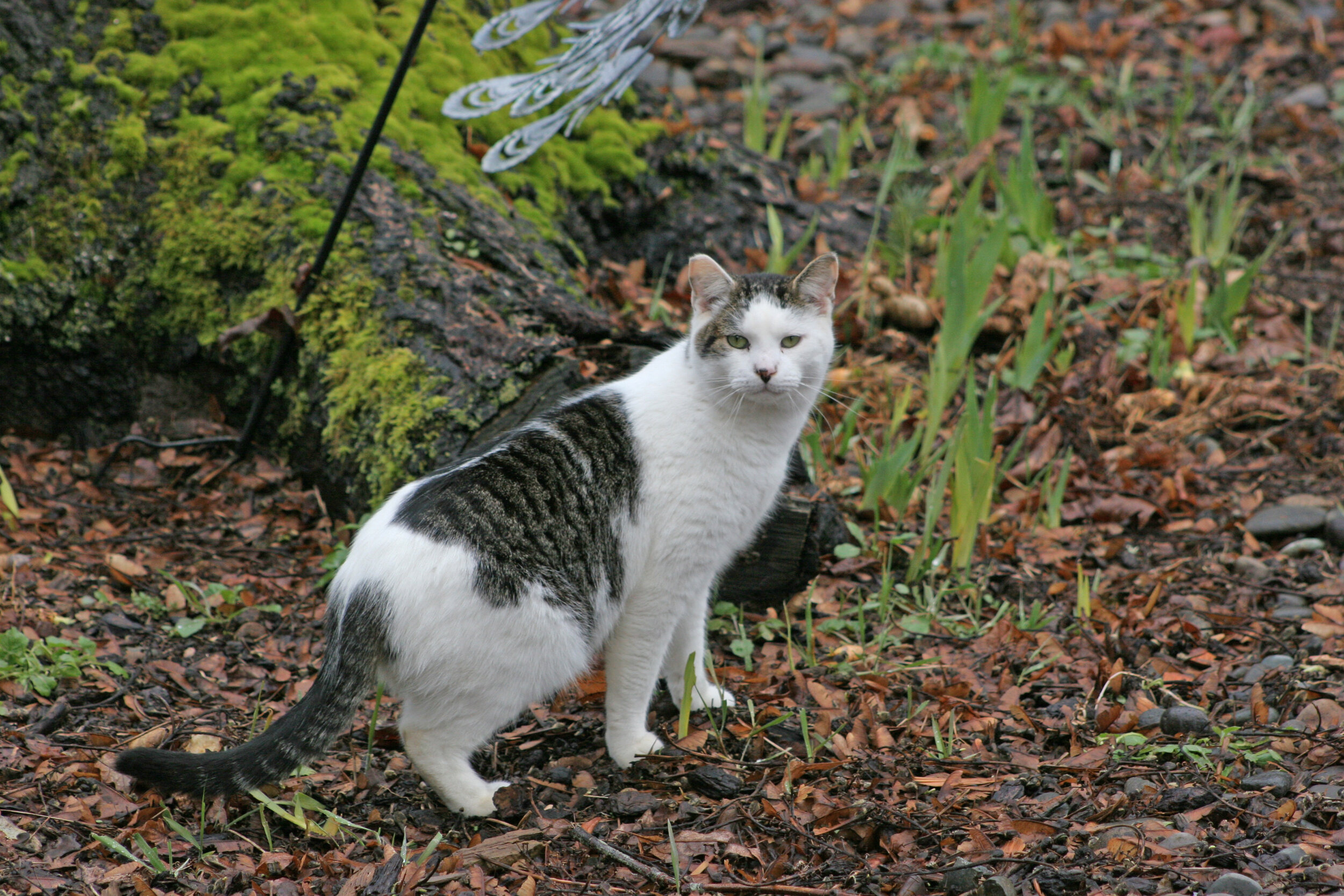
Best Practices when Caring for Feral and Stray Cats
FEEDING
Feed the cats at the same time every day. Cats are creatures of habit and they will quickly adjust to a feeding schedule. By feeding the cats at the same time every day you can monitor the cats and know the total number of cats being fed, when new cats show up, when a familiar face is missing, and if a cat is injured (see recommendations for sick or injured feral cats). This will also make it easier to trap cats for spaying/neutering or other medical needs.
Feed only as much as needed.
When the cats are on a feeding schedule they will come for the food and leave when full. This will show you how much is needed so that you don’t waste food or overfeed and attract unintended wildlife including rodents, raccoons, opossums, skunks, crows and other birds and wildlife.
Do not leave food out overnight or for any extended period of time. Typically the cats are done eating within a half hour of being fed, and it is then best to pick up the food. When you feed outdoor cats, it can also draw in wildlife, especially if excess food is presented or food is left out for extended periods or overnight. This negatively impacts both the cats and wildlife. For cats it can result in direct conflicts with wild animals, predation, disease transmission and complaints from neighbors. For wildlife, regular human handouts can result in habituation where wild animals associate people with food. The number one cause of urban wildlife conflicts is habituation caused by feeding and in many cases the result is the removal and elimination of the wild animal.
Remove the dishes when the cats are finished eating. Ideally, feed the cats on reusable dishes that can be picked up and cleaned. Disposable containers can often blow around as garbage once empty. Picking up the dishes will keep the area clean and tidy to reduce complaints and also reduce flies and other insects.
Provide fresh water. Be sure water is available and replace it regularly in clean containers.
SPAY/NEUTER
Spaying or neutering cats improves their health and prevents litters of homeless kittens. Even if you are able to find homes for a litter of kittens, it becomes harder to place the next litter and beyond. Until there are enough homes for all the cats who need them, please help prevent future generations of homeless cats by spaying/neutering your cats and all the feral and stray cats you feed.
Spaying/neutering greatly reduces the most common neighborhood complaints about cats spraying, fighting, and yowling. There are other behavioral and health benefits, as well.
SHELTER
Providing shelter for the cats not only gives them a safe place to escape the elements, it can prevent the cats from seeking shelter in one in your neighbor’s shed, porch or crawl space. To reduce this possible conflict with neighbors, create a space for the cats on your property or build/buy them a shelter. Check out our simple DIY shelter plans or ask about shelters when you bring your cat in for your spay/neuter appointment.
FIND HOMES WHEN POSSIBLE
We would like to see fewer cats living on our streets. You can help reduce the number of cats living outdoors by spaying/neutering the ones you feed and by finding homes for the friendly cats and kittens.
FCCO can help give friendly kittens a chance for a loving home. Contact us about our Kitten Caboose program where you sign the kittens to FCCO and they will be transported to the Oregon Humane Society for adoption. If the kittens are feral you can learn how to socialize them so they can find a forever home as well.
Be a good neighbor. We recognize that feeding a feral or stray cat comes from a place of compassion and concern for the cat’s well-being. It is a selfless act to help an animal in need, and when best practices are followed, it is better for the cat, the community and for wildlife. We encourage anyone feeding outdoor cats to follow these best practices.



